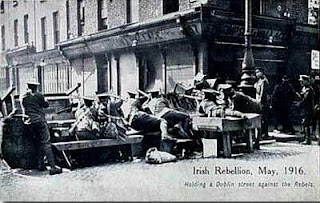Magic Toads and More Mushrooms:

In my last blog on mushrooms, I included a few lines on ‘magic mushrooms’. I did not mention ‘magic toads’.
It is a fact that ‘Toads secrete a thick, white, hallucinogenic substance from skin glands when they are injured or provoked. This toxin (C24H34O5) is called bufagin, bufotenin, or more colloquially, ‘toads' milk (Guiley 1989 341). The secretion acts like digitalis in biological action, and was believed to have been used by witches for various nefarious purposes. Toad excrement was theoretically used as an ingredient in flying potions by Basque witches (Levack 45). - ( http://www.shanmonster.com/witch/familiar/toad.html Toads, Magic, and Witchcraft).

Such witchcraft was practised in the British Isles going back to Pagan Times and beyond. There is little doubt that Merlin the Magician of King Arthur fame was a master of the craft. Certain ingredients that he placed in the gathered knights’ food before he did his magic often helped his wizardry. Again there is little doubt that he used the same Toad’s Milk and Magic mushrooms to create mass hypnosis.
Witches without any doubt used them and it is probably from such stories that the ‘flying broom’ comes. The story of the Princess kissing the ‘frog’ whereby it turns back into a handsome Prince is also based on the Toad principal. Many writers in the past, and some in the present, considered some form of hallucinatory drug an aid to writing their stories and songs. There is a story about the Beatles and ‘Sergeant Pepper’s Lonely-Hearts Club Band’ but that is best left unsaid.

There is also no doubt that Ireland, in particular the deep rural areas of Munster and Connaught were heavily into so called ‘magic’. There were people in the areas who would have known all the ‘secrets’ of what other cultures call ‘shamanism’.
The ‘shaman’ of Peru claimed that with the use of certain ‘drugs’ they were able to fly. The amazing designs of humming birds and such on the plains are not visible from the ground, yet they are almost perfect in every detail when seen from height in an aircraft. I am not of course suggesting that the shaman could in fact fly, I merely say that they claimed they could and by some means unknown to present day science, managed to do the near impossible.
Likewise when the Irish emigrated to America, they took with them their beliefs, many of which were of Pagan origin which some still practised alongside their Catholic religion. The ones who used ‘magic mushrooms’ or licked ‘magic toads’ without doubt continued to do so in America.
It is scientifically claimed that many Irish people in America fully believed that, using those means, they were able to ‘step aboard a vision’ and float back to Ireland to visit. Of course they were unable to do so, but by their stories they were able to convince other members of the community that they did.
However, one frightening example, which I shall give, is the one of Sheamus MacCarroll who wrote the song ‘Spancil Hill’. He left Ireland at the age of 15 with his parents in 1890 and sailed to New York. Both his parents died on the journey. Sheamus only barely survived the hard times on the streets of New York. When he was 22, he discovered the countryside and became a rambler. He met up with other Galway Irishmen and they formed a harvesting crew. They followed the work from State to State.
Sheamus was well versed in the old ways of Ireland and had been well taught by his grandmother. Sheamus would regularly pick ‘magic mushrooms’ in the fields whilst he worked and the toads less frequently. He would lace the communal tea with the milk or mushrooms and feed it to his compatriots. They would then of course ‘trip-out’. Sheamus being more or less in control of himself whilst under the influence, would ‘step aboard a vision’ and ‘anchor at the cross in Spancil Hill’.
This is the best-known set of circumstances that are fully recorded in the local Parish records. They would each year harvest two local widow’s corn and other crops and it was an exceptional act of charity in that they also rethatched several cottages and rebuilt dry-stone walls in the area – all for no charge.
Sheamus and his friends from the same area never did in fact return to Ireland, not even for a visit. Yet, the fully authenticated Church records clearly show that they helped to harvest several cereal crops and other acts of charity in the locality of Spancil Hill during the years, 1935,36 and 37.
They were in fact killed in a train crash in America in 1938.
There is quite a good version of the song on this link:
Nothing I have said in the above report should suggest that I recommend eating Magic Mushrooms or licking Toads Milk for you never know where you might end up making a fool of yourself.
A happy April to all you readers.
-------------------------













































 -------------
------------- 
